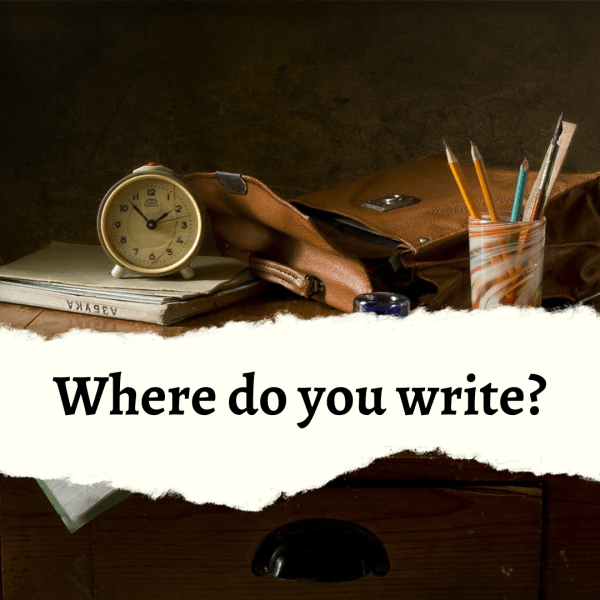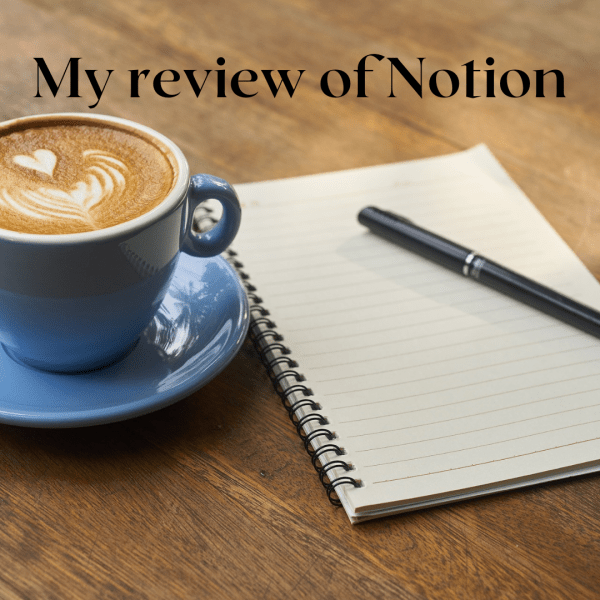With Nanowrimo right around the corner, I thought it might be nice to do a series getting back to some real bare-bone basics of living a writing life.
Then I realized I’m going to be doing a ton of Preptober content this month, and Banned Books Week is next week. Then of course there’s all the holiday content coming up. So while I’m still doing this series, it might be a little scattered.
But it will be here, damn it!
Today, I want to start with a question. Where do you write?
I’ve been blessed to always have a desk of my own. Even as a kid, I had a table in my bedroom. Today I have a whole office in our home, small as it is. I do work from home for my day job, so unfortunately it isn’t just a writing desk. But it is a desk of my own in a room of my own.
While this is a blessing, it’s not a necessity. I wrote books long before I had a whole office when my desk was crammed into a living room or my bedroom. I wrote books while I was working outside of my home. And even though I’ve always had a desk, I’ve written lots of my books while I wasn’t anywhere near it.
I’ve written in diners, laundromats, coffee shops, doctor’s waiting rooms, hospital rooms and libraries. I’ve written at bus stops, rest stops, haircut places, fast food joints. I’ve written in break rooms, under trees in the grass and on the couch in front of the TV. About the only place I don’t write (except maybe some journaling) is in bed because somewhere I heard it’s not good to work in bed because it trains your brain that this isn’t a place to rest.
Flexibility is crucial if you’re going to be a working writer. Unless you are very lucky, you are just not going to have the amount of quiet alone time in your home at your desk to put the number of words on the page that you want.
While it’s great, and necessary, to be flexible, it also doesn’t hurt to put some intention into your writing space. I have always tried to keep a physical space where I can (ideally) write in peace at home. But I’ve also kept a bag packed with things that allow me to create a writing space anywhere I am.
Crafting both of those things requires the same questions to be answered. And of course, your ideal writing space is going to look quite different than mine. So here are some practical considerations to help you create a place where writing is a pleasure.
Consider what you’re writing
Writing a blog post or review is different for me than writing a novel. Editing again is different. I almost never write posts in coffee shops because I’m so used to writing prose there.
How does a certain place make you feel? Does the library bring out your childish side? Do you feel more professional working at your desk? Do you think best at the kitchen table after everyone else is in bed?
If you’re unsure, try this exercise. Attempt a fifteen to twenty-minute freewriting session at several places you tend to write in.
How did you feel writing in each of these places? Does one place feel safer? Does another place feel like you ought to be doing your Math homework instead?
I can’t explain it, except that some places have certain vibes that lend themselves to certain activities. Maybe it’s the lighting. Maybe it’s the background sounds. Maybe it’s something in our past that makes us associate a place with a feeling.
Consider your tools
Different writing projects require different things of us. When I’m rough drafting, I just need my notebook and my outline. And a pen, of course. This is probably the easiest draft to take everywhere.
The second draft requires my laptop, the first draft, and several colored pens. Again, this can all be tossed into a bag and taken to most places.
Outlining is a whole other thing. This requires index cards, post-it notes, pens, markers, three virgin sacrifices and a mandrake root.
And coffee.
This isn’t an activity I would try anywhere but my house, because it’s such a mess and requires so much space.
The point is that you should consider what you’re going to need to accomplish a project. Do you need space, quiet, coffee? Is a good internet connection vital (when I write a review) or forbidden (when I’m writing prose?)
These are all things to consider when you’re planning where you’ll be writing. Even in your own home. Maybe your writing desk doesn’t have the space for a certain project. Maybe your place has internet dead spots. Maybe one spot in the house seems to invite tabby battles.
Think about it before, and you won’t have to think about it when you’re writing.
Consider your preferences
Everyone has likes and dislikes. And while we can’t always have everything we want, we can usually have some of it.
Consider what sort of chair you’d like. What sort of lighting do you like? Do you enjoy having a candle burning when you work? Are there certain reference books or things you like to have around for inspiration?
What kind of pens do you like? Do you prefer paper or PC? Maybe you’re an absolute weirdo perfectly valid person deserving of love who writes on their phone.
Do not let anyone tell you what you should like. Writing is, after all, art. You should choose the tools you use for your art all by yourself. And hopefully, you’re going to be spending a lot of time writing. You should be as comfortable as possible while you do that.
So that’s it. If you’re a new writer, I hope this post helps you create a space in your home and out to write. If you’ve been a writer for a while, I hope this post inspires you to update where you’re writing if it needs it.
Next week is the start of Preptober, so get excited for some extra content. Banned Books Week also begins next week. We’ll be seeing a lot of each other in the next month is what I’m trying to say.
See you then.









Recent Comments